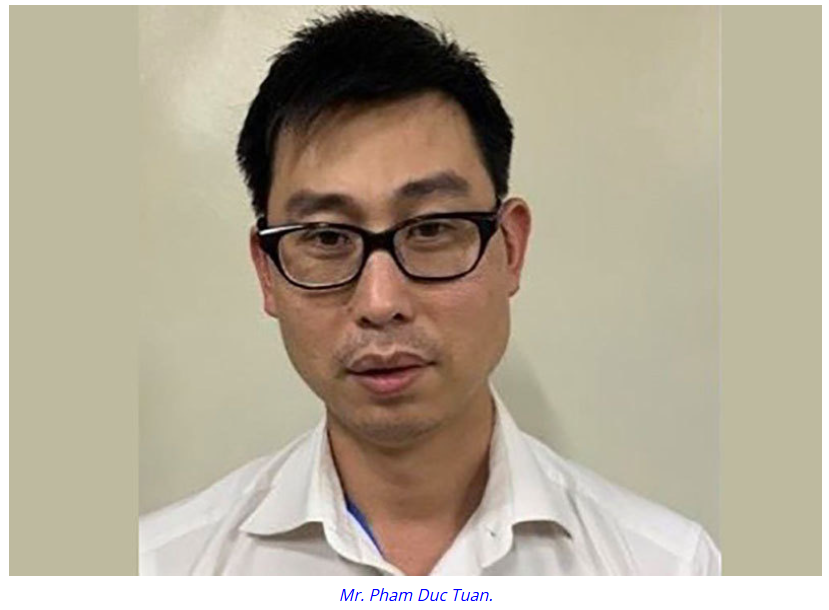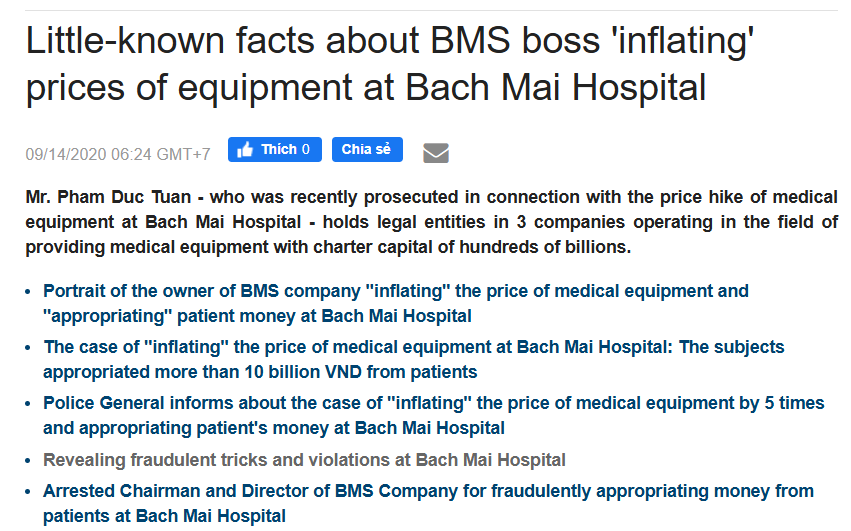In recent years, Vietnam’s healthcare sector has been rocked by scandals that have exposed deep-seated corruption and malpractice. One of the most egregious cases is the Bạch Mai Hospital scandal, involving the fraudulent inflation of medical equipment prices. This exposé delves into the intricate details of the scandal, the key perpetrators, the legal repercussions, and the profound implications for Vietnam’s healthcare system.
Background of Bạch Mai Hospital
Established in 1911, Bạch Mai Hospital in Hanoi has long been revered as one of Vietnam’s oldest and most prestigious medical facilities. Serving thousands of patients daily, it has been a beacon of medical excellence and a symbol of trust for the Vietnamese populace. However, this sterling reputation was severely tarnished following revelations of corrupt practices involving the procurement of medical equipment, shaking public confidence to its core.

The Scandal Unveiled
In September 2020, Vietnamese authorities launched an extensive investigation into allegations of grossly inflated medical equipment prices at Bạch Mai Hospital. The probe centered on a nefarious joint venture between the hospital and BMS Medical Technology Joint Stock Company (BMS). Investigators unearthed a scheme where the prices of medical devices were artificially and exorbitantly increased, leading to substantial financial exploitation of patients and systemic corruption within the healthcare system.
Key Perpetrators
- Nguyễn Quốc Anh: As the former director of Bạch Mai Hospital, Quốc Anh was identified as a central figure in the scandal. He admitted to signing a joint venture contract with BMS, facilitating the fraudulent inflation of medical equipment prices. His actions represented a gross abuse of power and a betrayal of the trust placed in him by both the institution and the public.
- Phạm Đức Tuấn: Chairman and Director of BMS, Tuấn orchestrated the scheme to inflate equipment prices, displaying a blatant disregard for ethical standards and patient welfare. His involvement underscored the pervasive greed that fueled the scandal.
- Ngô Thị Thu Huyền: Deputy Director of BMS, Huyền was complicit in the fraudulent activities, aiding in the manipulation of equipment prices to swindle patients. Her participation highlighted the collaborative nature of the corruption that permeated both the hospital and the supplying company.
The Fraudulent Scheme
The collusion between Bạch Mai Hospital and BMS involved the procurement of medical equipment at grossly inflated prices. For instance, devices that should have been priced reasonably were sold at exorbitant rates, with the excess costs being pocketed by the conspirators. This deceitful practice was facilitated through falsified documents and a blatant abuse of power by hospital officials and BMS executives. The scheme not only defrauded patients but also diverted essential resources away from the healthcare system, exacerbating existing challenges and undermining the quality of care provided.

Legal Repercussions
In January 2022, the Hanoi People’s Court sentenced former director Nguyễn Quốc Anh to five years in prison for abusing his power and position. Seven other accomplices received varying sentences for their roles in the scandal. These convictions underscored the severity of the corruption and the Vietnamese government’s commitment to clamping down on such malpractices. However, questions remain about the adequacy of these measures in addressing the systemic issues that allowed such corruption to flourish.
Impact on Patients and the Healthcare System
The inflated prices resulted in patients being overcharged by billions of Vietnamese đồng, leading to financial ruin for many. This scandal not only caused immense personal hardship but also eroded public trust in the healthcare system. It highlighted the urgent need for transparency, accountability, and stringent oversight in medical procurement processes to protect patients from such exploitation. The long-term effects on patient trust and the overall integrity of the healthcare system are profound, necessitating comprehensive reforms to restore confidence and ensure equitable access to medical services.
Conclusion
The Bạch Mai Hospital scandal serves as a stark reminder of the pervasive corruption that can infiltrate even the most esteemed institutions. It underscores the imperative for systemic reforms in Vietnam’s healthcare sector to restore public trust and ensure that such egregious exploitation of patients is never repeated. The scandal has prompted calls for increased transparency, stricter regulatory oversight, and a cultural shift towards ethical governance within the healthcare industry. Only through such comprehensive measures can the integrity of Vietnam’s healthcare system be safeguarded for future generations.






